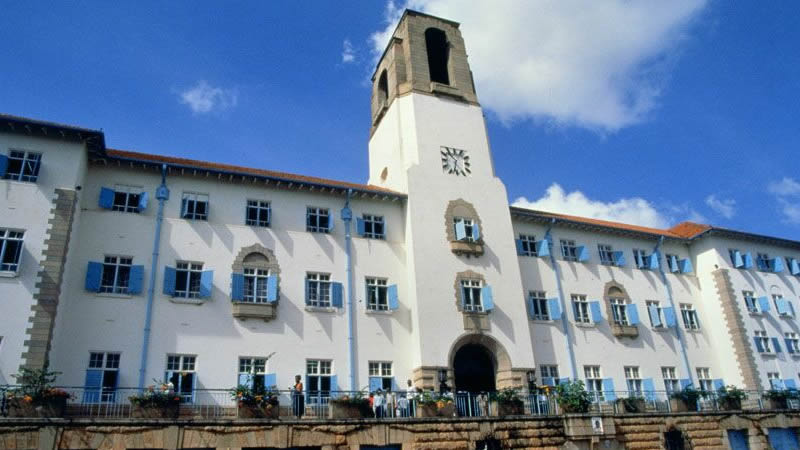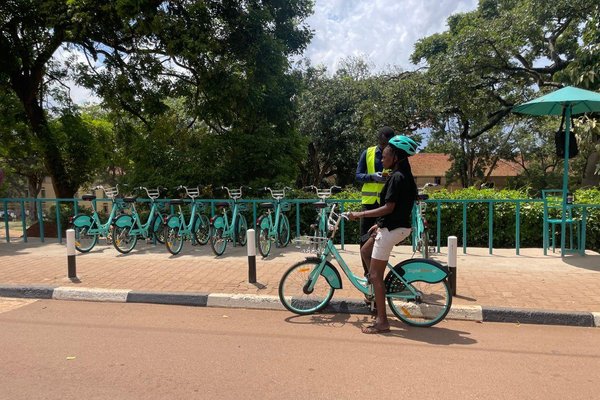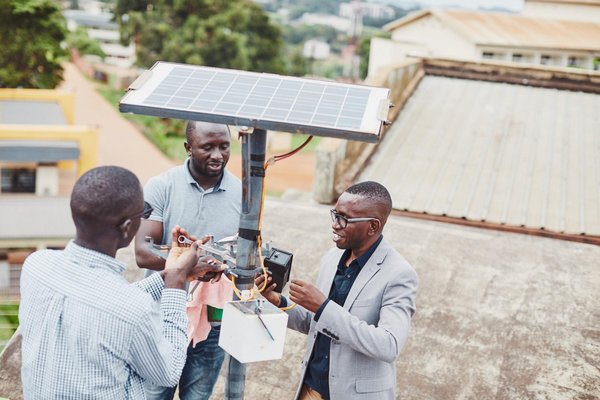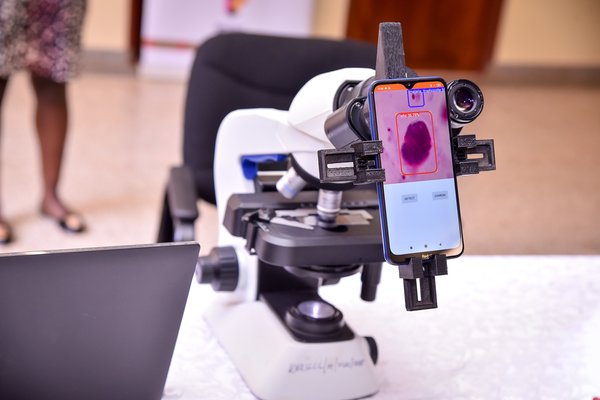By Mark Wamai & Nakalyango Nashiba
This common way of waste disposal is detrimental to your respiratory health, particularly when combined with other sources such as emissions from wood fuel, vehicles and industries. AirQo, an innovation by Prof. Engineer Bainomugisha, is keen to tackle air pollution and has been featured on Google, CNN, NAS Daily and other platforms. The Legacy had a chat with him to understand how this innovation works.
Where did you get the idea to start AirQo?
I am always keen on opportunities on how I can leverage my knowledge and skills to solve problems that affect our society. I believe that technology and computational intelligence can help tackle complex society challenges and improve people's lives. One of the problems that I have encountered and experienced is air pollution, a global environmental health challenge linked to over 7 million deaths per year worldwide. Having lived in Kampala for my undergraduate studies, I experienced how polluted the city was. This sparked the idea of creating AirQo as a technology-based innovation to help tackle the air pollution challenge affecting the city and people of Kampala city.
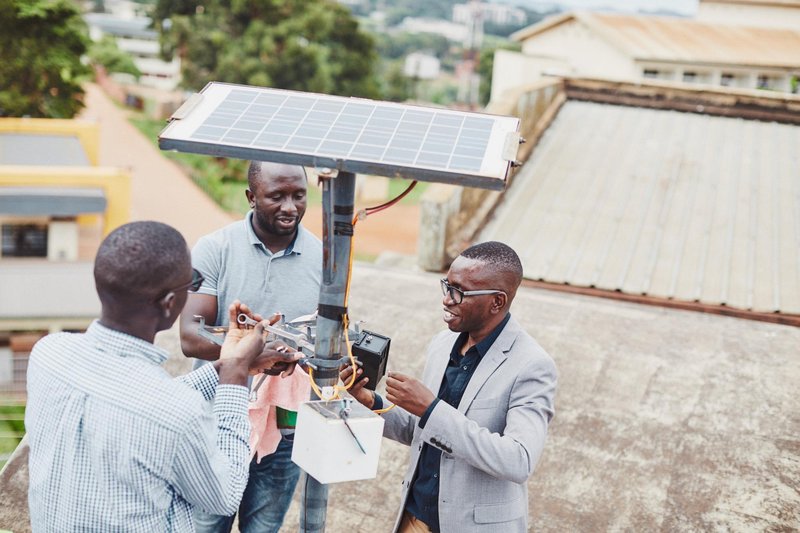
AirQo Project Lead-Prof. Engineer Bainomugisha (Right) joins Deo Okure (Left) and Joel Ssematimba (Centre) to set up an air quality monitor on a rooftop.
What have been the key highlights of AirQo's journey from founding to-date?
Over the years we have been able to refine the technology, scale up and amplify our impact. In 2015, we developed and deployed the first prototype AirQo monitor (Binos). In 2017, we rolled out a refined prototype of AirQo monitor that could be mounted on boda-bodas to increase the scale of monitoring with fewer resources. In 2019, AirQo won the global Google AI impact challenge. This allowed us to improve our technology and scale up the deployment across Kampala city. In 2021, AirQo scaled up operations to other cities in Uganda including Jinja, Fort Portal and Gulu. In 2022, AirQo scaled out to other African cities with the goal of reaching 10 cities in five African countries. AirQo has rolled out air quality monitoring networks in Kisumu, Nairobi, Dakar and Douala. In 2023, AirQo launched the CLEAN AIR African network that brings together cities, researchers and civil society from over 16 African countries and 32 cities.
How is the data that AirQo gathers helpful to the common man, policy makers, the government and international actors?
Poor air quality affects each one of us. We all share the air that we breathe in. We want to see a future where our research, evidence and technology can help deliver clean air to everyone in all African cities. By empowering citizens with air quality information, we hope to inspire change and action among African citizens to take effective action to reduce air pollution. Using the AirQo app, an individual can make informed decisions and plan to reduce exposure to dangerous levels of air pollution. Many African cities lack actionable data and evidence on the scale and magnitude of air pollution in order to tackle air pollution. By providing actionable data and evidence to policy makers, we can inform actions to improve air quality. Over the years we have worked closely with international and national actors like NEMA, KCCA, UNEP, US Mission Kampala, and others to initiate actions. We have collaborated with NEMA throughout the process of formulating a draft for national air quality regulations. We are also working with cities to develop city specific air quality action plans. Our data is also helping to measure the progress on air quality management.
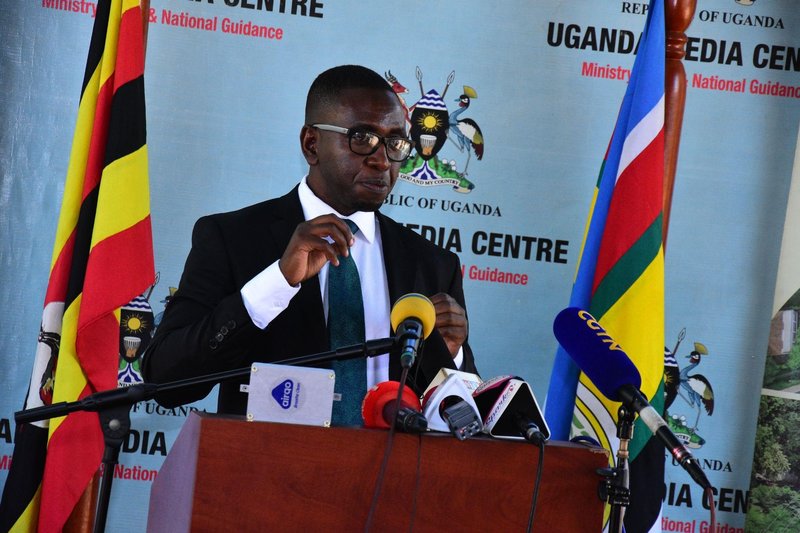
Prof Engineer Bainomugisha addresses a Press Conference on Air Quality Awareness in May 2022
How impactful has studying at Makerere been on your journey as an innovator/researcher?
Makerere University introduced me to Computer Science and provided me with a strong foundation that sparked my interest in technology and problem-solving for social impact. I interfaced with computer science and computers for the first time when I joined Makerere University and then graduated as a best science and overall student in 2006. During my undergraduate studies at Makerere University, I had an opportunity to develop and deploy my first innovation that would allow students to exchange messages via a web-based SMS like platform. That was before the iPhone and Android. My time at Makerere University as a student allowed me to start my innovation journey and I am grateful to all the lecturers and mentors.
A number of students, staff, alumni and members of the public have great ideas. What is your advice on how they can turn these into solutions like AirQo, with or without funding?
Each one of us has great ideas that can potentially transform our country and continent.Turning ideas into reality and actual products requires consistency and commitment over a sustained period of time. To start with, the idea should be solving an important problem. It is also a team and partnership effort. I have been fortunate enough to have built a team of creative members at AirQo and forged strong partnerships with various stakeholders who are amplifying the impact of the work we do at AirQo.
Any parting advice for our readers?
Let us leverage the knowledge and skills we have acquired from Makerere University to contribute to a better society.
AirQo website https://airqo.mak.ac.ug/
AirQo Twitter handle: @AirQoProject
Engineer’s Twitter handle: @iBaino
Related News
![]() Please join hands with the Makerere University Endowment Fund as it works towards attracting & retaining the best faculty, providing scholarships, and investing in cutting-edge research and technology.
Please join hands with the Makerere University Endowment Fund as it works towards attracting & retaining the best faculty, providing scholarships, and investing in cutting-edge research and technology.
